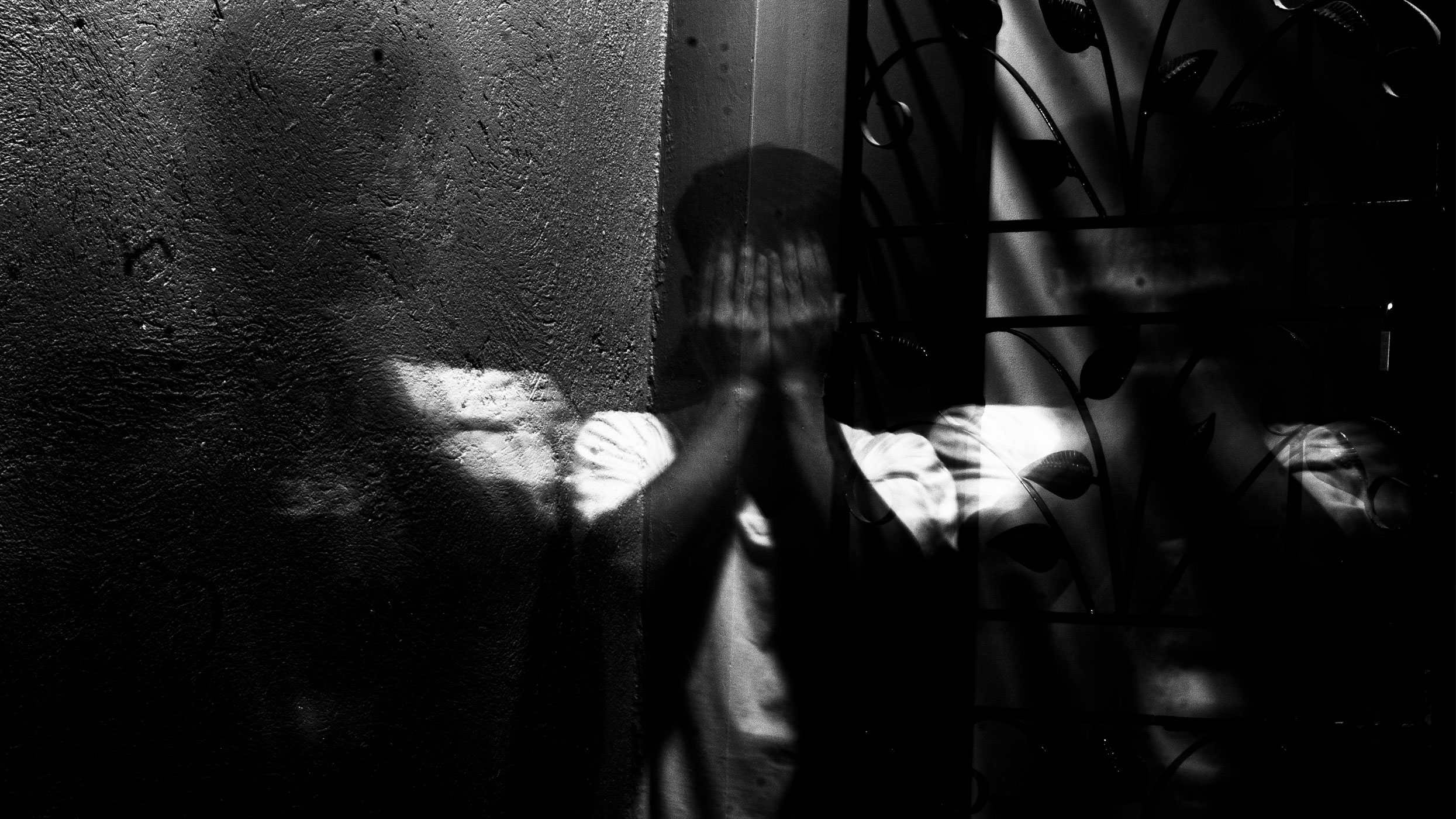Forsaken

We’ve been through deep, dark valleys, and often, out of shame (hiya), we keep silent about our pain (sakit). We do not want to burden others, so we suffer quietly, pretending everything is okay. Perhaps you’ve been in one of these situations:
A member of your small church, someone you deeply cared for, said goodbye. You feel abandoned. Though you’ve tried to mend what was torn, it seems it will remain broken. All you have is painful silence …
You’re working abroad, sacrificing for your family, cut off from everyone you know and love. It feels so lonely. You struggle to connect with those near you, even those you can call or message. No one responds. All you have is a hollow estrangement …
Someone in your family recently, suddenly died. Even after days of mourning, you’re struggling to find some sense of normalcy. Nothing makes sense. All you have are bitter tears …
Have you ever felt utterly alone?
Jesus did. He went through the deepest, darkest valley. He left the glory and comfort of heaven and came to a world that rejected him (Jn. 1:10-11). Deep into Thursday (the night of the Passover), he told his disciples that he would be betrayed, suffer, and die (Matt. 26:2, 31-32). In response, the disciples pledged undying loyalty to him (Matt. 26:33, 35). Throughout the night in Gethsemane, he spent agonizing hours, praying and pouring out his heart to the Father with sorrow to the point of death (Matt. 26:38). He pleaded with the Father for the cup to pass from him, but submitted to the Father’s will (Matt. 26:39). Yet, his disciples could not remain awake with him (Matt. 26:40-41). Then, at the moment of his arrest, in his greatest hour of need, they abandoned him (Matt. 26:56).”
Then came Friday (Biyernes Santo), the Day of Preparation. From midnight until sunrise, he was tried and subjected to false charges. Throughout the morning, he was mocked, spat on, beaten, and flogged. By mid-morning, his scourged body was torn, raw, and drenched in blood. Thorns were pressed into his skull. He was made to carry a rough wooden beam and forced to walk up to the rocky hill called Golgotha. There, his limbs were crudely secured to the beam, and three rusty spikes were driven through his flesh and bone, each pounded in with the brute force of a heavy mallet.
Raised vertically from the ground, he hung in searing pain, his body’s weight pulling against the wounds in his wrists and feet. With his muscles cramping and his strength failing, he pulled himself upward to draw short gasps of air. By mid-afternoon, when the sun’s heat would have been at its peak, it grew unusually dark.1 Jesus cried out with all his breath in the language of his heart, “My God, my God, why have You forsaken Me?” (Matt. 27:46).
These words, drawn directly from Scripture (Psa. 22:1), were Jesus’ audible lament before the Father, expressing his soul-wrenching reality. Throughout his public ministry, the Father had been with him, but now, for the first and only time, Jesus cried out that he had been abandoned.2 Though he only used the first verse, he may have been alluding to the whole of Psalm 22, recognizing the deep, dark valleys that David walked and reflecting on Israel’s long history of suffering.3 Yet, Jesus’ anguish was infinitely darker. He bore the full weight of all our sins (1 Pet. 2:24), took upon himself the curse meant for us (Gal. 3:13),4 became sin (2 Cor. 5:21), and was crushed under the Father’s righteous wrath toward sin in our place (Isa. 53:4-6, 10).5 He took the cup, his blood poured out as a ransom for sins (Matt. 20:28; 26:28).6 In his humanity, he was forsaken, abandoned, and alone in darkness.
Yet his hapless cry was not hopeless. Though death was closing in, and darkness surrounded him, these words did not mark his end. His cry pointed to an eschatological ember of hope.7 His suffering was not purposeless, as the Psalm’s readers might recognize. Its poetry moves from lament (Psa. 22:1-21) to praise (Psa. 22:22-31), even amidst the final blow of death.8
As he lamented the Father’s abandonment on the cross, the final section of the Psalm carries a hidden anticipation.9 Even as Jesus’ consciousness waned and his broken heart and body dimmed like a dying flame, the fading smoke whispered a message of hope:
For he has not despised or abhorred the affliction of the afflicted, and he has not hidden his face from him, but has heard, when he cried to him. (Psa. 22:24, ESV)
The story does not end in darkness. Though you may be experiencing a Friday (Biyernes Santo) today, Sunday (Linggo ng Pagkabuhay) is coming. He was forsaken and abandoned so that we would never suffer alone in shame and pain.
- 1 Samson L. Uytanlet, Matthew, Asia Bible Commentary (UK: Langham, 2017), 270.
- 2 Ibid., 270–1.
- 3 Gerald Wilson, Psalms vol. 1, NIVAC (Grand Rapids: Zondervan, 2002), 424.
- 4 Michael J. Wilkins, Matthew, NIVAC (Grand Rapids: Zondervan, 2004), 903.
- 5 Ibid.
- 6 David L. Turner, Matthew, BECNT (Grand Rapids: Baker), 669.
- 7 Wilkins, Matthew, NIVAC, 425.
- 8 Federico Villanueva, Psalms 1–72, Asia Bible Commentary (UK: Langham, 2016), 131.
- 9 Ibid.

